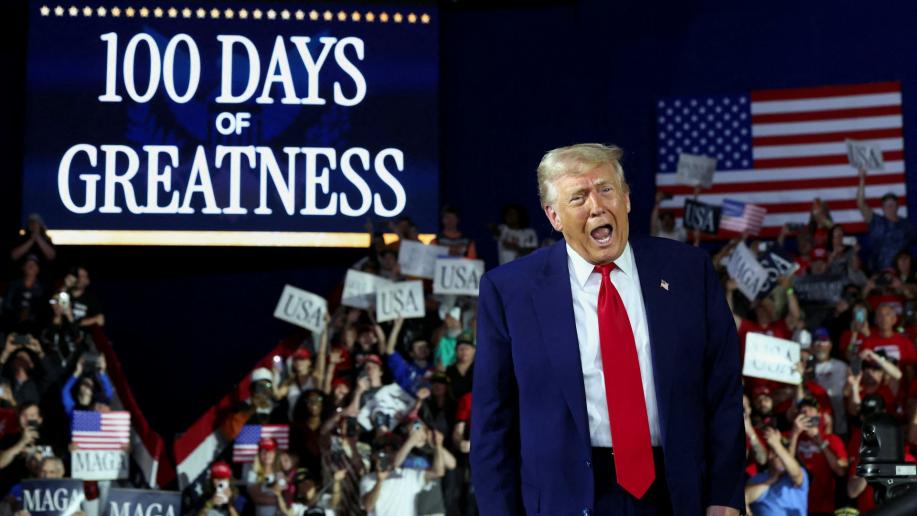
The Trump administration recently announced a proposed rule to impose a four-year limit on the study duration of international students in the United States. This new regulation would end the long-standing policy that allowed foreign students to stay indefinitely during their studies and would strictly limit their stay. Specifically, foreign students (those holding F visas) would only be allowed to stay in the U.S. for a maximum of four years, with no flexibility to extend the duration based on their academic progress.
Purpose and Background
According to an announcement from the U.S. Department of Homeland Security (DHS), the main purpose of the proposed rule is to curb "visa abuse" and improve oversight and management of foreign students and other visa holders. The U.S. government believes that for years, some international students have taken advantage of America’s lenient policies, remaining in the country after completing their studies, which has led to security risks and financial burdens. Some students have even become "perpetual students" by continuously extending their academic time without engaging in meaningful academic activities. The government believes this phenomenon wastes resources, harms the interests of U.S. citizens, and poses a potential national security threat.
Key Provisions of the Proposed Rule
If implemented, this new rule would limit the duration of stay for foreign students. For F visa holders, their stay would be capped at four years, which is generally shorter than the time required to complete higher education beyond a bachelor’s degree. For instance, students pursuing master’s or doctoral degrees typically need more time to finish their studies, but under the new rule, their visa would be strictly limited to four years. In addition, the proposed rule also stipulates that foreign journalists’ initial stay in the U.S. would be limited to 240 days, with a possible extension, but not exceeding the duration of their assignment.
Security and Economic Considerations
The DHS emphasized that the goal of this rule is to strengthen the scrutiny of foreign students and their history. The government has argued that for years, foreign students and other visa holders have been allowed to stay in the U.S. almost indefinitely, which has created management difficulties, increased the burden on taxpayers, and posed national security risks. The proposed rule is designed to allow the government to more effectively manage the stay of foreign students and conduct regular evaluations of visa holders.
However, this new regulation could have negative consequences for U.S. higher education. Foreign students often pay higher tuition fees, which are crucial for the financial health of many U.S. universities. If the new rule leads to a decrease in the number of international students, it could cause financial strain for some institutions. Furthermore, international students contribute significantly to innovation, cultural exchange, and global competitiveness in the U.S. Reducing their numbers could weaken the U.S.’s leadership in global academic and research fields.
Opposition from Various Groups
Several education and international student organizations have strongly opposed the new rule proposed by the Trump administration. Fanta Aw, the Executive Director of the National Association of Foreign Student Advisers (NAFSA), stated that this rule would further hinder international students from studying in the U.S., potentially leading more students to choose other countries over the U.S. She noted that if the rule is implemented, it would seriously harm the U.S. economy, innovation, and global competitiveness.
In addition to concerns from the education sector, some Democratic lawmakers have also criticized the proposal. They believe the rule not only restricts students' freedoms but could also hinder global education and cultural exchange opportunities. Especially given the current international climate, any measure that limits the inflow of international students could diminish the U.S.'s attractiveness in the global education market.
Breaking from Traditional American Ideals
The Trump administration's proposed change to international student policies reflects the government’s stance on immigration and visa management. While the intention behind the policy is to increase security and enhance oversight, it could also negatively impact the financial status, innovation capacity, and global competitiveness of U.S. higher education. Opponents argue that limiting the time international students can study in the U.S. contradicts America's long-standing "welcoming talent from around the world" ideology, and may challenge the U.S.'s leadership in global academia and technology. Whether this policy will succeed remains a question worth watching.

Due to the continuous decrease in rainfall and the rapid drop in groundwater levels, several large sinkholes have successively appeared in several agricultural areas in central Turkey in recent years, causing great concern among local farmers and environmental experts.
Due to the continuous decrease in rainfall and the rapid dr…
The Prime Minister's Office of Israel said Hamas attacked I…
Fourteen countries including the United Kingdom, France and…
The US Department of Justice said on Wednesday (December 24…
The Japanese government has submitted a draft, planning to …
On December 25th local time, NVIDIA announced a technology …